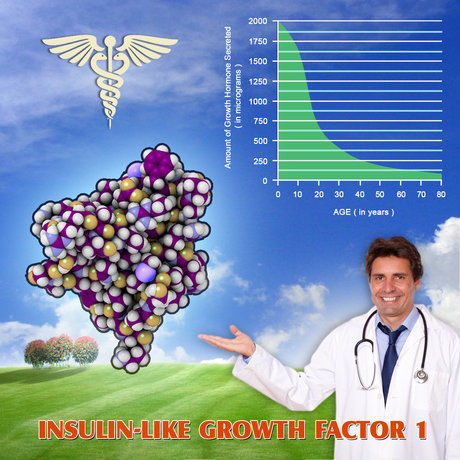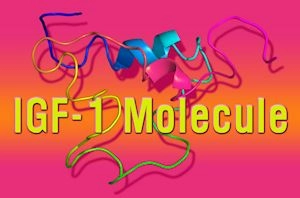Understanding Low Libido
Low libido, or a decreased interest in sexual activity, is a common concern among American men. It can be influenced by various factors, including psychological, physical, and lifestyle elements. Recognizing the symptoms and seeking a proper diagnosis is crucial for addressing this issue effectively.
Initial Steps: Self-Assessment and Consultation
The journey to understanding low libido begins with self-assessment. Men should reflect on their sexual desire over time and consider any changes in their interest or performance. If a noticeable decline is observed, consulting a healthcare provider is the next step. A candid discussion about symptoms, medical history, and any medications being taken is essential for a thorough evaluation.
Medical Evaluation: What to Expect
During a medical checkup for low libido, a healthcare provider will likely conduct a comprehensive physical examination. This may include checking for signs of hormonal imbalances, such as low testosterone levels, which can significantly impact sexual desire. Blood tests may be ordered to measure hormone levels, thyroid function, and other relevant markers.
Psychological Factors and Their Role
Psychological factors play a significant role in libido. Stress, anxiety, depression, and relationship issues can all contribute to a decreased interest in sex. A healthcare provider may recommend a referral to a mental health professional if psychological concerns are suspected to be the primary cause of low libido.
Exploring Lifestyle Influences
Lifestyle factors such as excessive alcohol consumption, smoking, and poor diet can also affect libido. During the medical checkup, healthcare providers will discuss these aspects and may suggest lifestyle modifications to improve overall health and sexual function.
The Importance of Hormonal Balance
Hormonal imbalances, particularly low testosterone, are a common cause of low libido in men. If blood tests indicate a hormonal issue, further evaluation by an endocrinologist may be necessary. Treatment options, such as testosterone replacement therapy, can be considered if deemed appropriate.
Medications and Their Impact
Certain medications, including those for blood pressure, depression, and anxiety, can have side effects that impact libido. A thorough review of current medications is essential during the diagnostic process. In some cases, adjusting or changing medications may help alleviate the issue.
Specialized Testing and Referrals
If initial evaluations do not reveal a clear cause of low libido, more specialized testing may be required. This could include referral to a urologist or a sexual health specialist who can perform additional tests, such as penile Doppler ultrasound or nocturnal penile tumescence testing, to assess erectile function and blood flow.
Collaborative Approach to Diagnosis
Diagnosing low libido often requires a collaborative approach involving various healthcare professionals. Primary care physicians, endocrinologists, urologists, and mental health specialists may all play a role in the diagnostic process. Open communication and a willingness to explore all potential causes are key to achieving an accurate diagnosis.
Moving Forward: Treatment and Management
Once a diagnosis is reached, treatment and management strategies can be tailored to the individual's needs. This may include lifestyle changes, psychological therapy, medication adjustments, or hormonal treatments. Regular follow-up appointments are important to monitor progress and make any necessary adjustments to the treatment plan.
Empowering Men to Seek Help
Low libido can be a challenging and sensitive issue for many American men. However, by understanding the diagnostic process and the various factors that can contribute to this condition, men can feel empowered to seek help and take control of their sexual health. With the right support and treatment, it is possible to restore a healthy and satisfying sex life.
Contact Us For A Fast And Professional Response

- The Evolution of Medical Science in Addressing Low Libido Problems [Last Updated On: March 2nd, 2025] [Originally Added On: March 2nd, 2025]
- Exploring Strategies to Enhance Male Libido: Hormonal, Psychological, and Lifestyle Interventions [Last Updated On: March 3rd, 2025] [Originally Added On: March 3rd, 2025]
- Understanding and Managing Low Libido in American Men [Last Updated On: March 4th, 2025] [Originally Added On: March 4th, 2025]
- Exploring Hormonal Influences on Male Libido: Causes, Symptoms, and Treatment Options [Last Updated On: March 5th, 2025] [Originally Added On: March 5th, 2025]
- Understanding and Addressing Low Libido in Men: Causes and Effective Treatments [Last Updated On: March 6th, 2025] [Originally Added On: March 6th, 2025]
- Managing Decreased Libido Post-Menopause: Understanding Causes and Effective Solutions [Last Updated On: March 7th, 2025] [Originally Added On: March 7th, 2025]
- Understanding Low Libido: Causes, Impacts, and Solutions for Men's Sexual Health [Last Updated On: March 8th, 2025] [Originally Added On: March 8th, 2025]
- Unraveling the Link: Anxiety and Its Impact on Male Libido in the American Population [Last Updated On: March 8th, 2025] [Originally Added On: March 8th, 2025]
- Impact of Mental Health on Men's Libido: Strategies for Comprehensive Care [Last Updated On: March 9th, 2025] [Originally Added On: March 9th, 2025]
- Revitalizing Intimacy: Strategies for Overcoming Low Libido in Long-term Relationships Among American Males [Last Updated On: March 11th, 2025] [Originally Added On: March 11th, 2025]
- Unraveling the Link Between Chronic Diseases and Low Libido in American Males: A Comprehensive Medical Insight [Last Updated On: March 12th, 2025] [Originally Added On: March 12th, 2025]
- Exploring Medical Interventions for Low Libido in Postpartum Women: A Guide for American Males [Last Updated On: March 13th, 2025] [Originally Added On: March 13th, 2025]
- Advancements in Treating Low Libido: Innovations and Personalized Medicine for American Males [Last Updated On: March 15th, 2025] [Originally Added On: March 15th, 2025]
- Physical Causes of Low Libido in American Males: Hormones, Health, and Lifestyle [Last Updated On: March 16th, 2025] [Originally Added On: March 16th, 2025]
- Medication-Induced Low Libido: Causes, Impacts, and Management Strategies for American Men [Last Updated On: March 17th, 2025] [Originally Added On: March 17th, 2025]
- Understanding and Treating Low Libido in Men: A Comprehensive Guide [Last Updated On: March 17th, 2025] [Originally Added On: March 17th, 2025]
- Exploring Causes and Treatments for Low Libido in American Men [Last Updated On: March 18th, 2025] [Originally Added On: March 18th, 2025]
- Psychological Factors Impacting Low Libido in American Males: Stress, Depression, and More [Last Updated On: March 20th, 2025] [Originally Added On: March 20th, 2025]
- Low Libido in American Males: Health Risks and the Importance of Seeking Help [Last Updated On: March 20th, 2025] [Originally Added On: March 20th, 2025]
- Natural Supplements for Low Libido: Prospects and Benefits for American Men [Last Updated On: March 20th, 2025] [Originally Added On: March 20th, 2025]
- Exploring the Link Between Low Libido and Depression in American Men [Last Updated On: March 20th, 2025] [Originally Added On: March 20th, 2025]
- Hyperthyroidism's Impact on Libido in American Males: Causes, Effects, and Management [Last Updated On: March 20th, 2025] [Originally Added On: March 20th, 2025]
- Advances in Treating Low Libido: Hormonal, Psychological, and Lifestyle Innovations for Males [Last Updated On: March 21st, 2025] [Originally Added On: March 21st, 2025]
- Low Libido in American Males During Partner's Lactation: Causes and Solutions [Last Updated On: March 21st, 2025] [Originally Added On: March 21st, 2025]
- Managing Medication-Induced Low Libido: Causes, Strategies, and Solutions for Men [Last Updated On: March 21st, 2025] [Originally Added On: March 21st, 2025]
- Understanding and Treating Low Libido in American Males: A Holistic Approach [Last Updated On: March 22nd, 2025] [Originally Added On: March 22nd, 2025]
- Chronic Illness Impact on Libido: Strategies for American Males [Last Updated On: March 22nd, 2025] [Originally Added On: March 22nd, 2025]
- Diabetes and Low Libido in American Men: Causes, Management, and Emerging Therapies [Last Updated On: March 23rd, 2025] [Originally Added On: March 23rd, 2025]
- Exploring Treatments for Low Libido in American Males: Hormonal, Pharmacological, and Psychological Approaches [Last Updated On: March 23rd, 2025] [Originally Added On: March 23rd, 2025]
- Exploring Medical Interventions for Low Libido in American Males [Last Updated On: March 24th, 2025] [Originally Added On: March 24th, 2025]
- Understanding Low Libido in Men: Causes and Effective Solutions [Last Updated On: March 24th, 2025] [Originally Added On: March 24th, 2025]
- Low Libido in Middle-Aged Men: Causes, Treatments, and Future Innovations [Last Updated On: March 24th, 2025] [Originally Added On: March 24th, 2025]
- Understanding and Treating Low Libido in American Males: Causes and Solutions [Last Updated On: March 24th, 2025] [Originally Added On: March 24th, 2025]
- Childbirth's Impact on Male Libido: Understanding and Reviving Intimacy in American Men [Last Updated On: March 25th, 2025] [Originally Added On: March 25th, 2025]
- Understanding and Addressing Low Libido in American Males: A Comprehensive Guide [Last Updated On: March 25th, 2025] [Originally Added On: March 25th, 2025]
- Sudden Low Libido in American Males: Causes and Solutions [Last Updated On: March 25th, 2025] [Originally Added On: March 25th, 2025]
- Low Libido in American Men: Causes, Impacts, and Treatment Options [Last Updated On: March 25th, 2025] [Originally Added On: March 25th, 2025]
- Alcohol's Impact on Libido: Insights for American Men's Sexual Health Management [Last Updated On: March 25th, 2025] [Originally Added On: March 25th, 2025]
- Low Libido in American Males: Treatments, Risks, and Side Effects Overview [Last Updated On: March 25th, 2025] [Originally Added On: March 25th, 2025]
- Understanding and Addressing Low Libido in American Men: Causes, Impacts, and Solutions [Last Updated On: March 25th, 2025] [Originally Added On: March 25th, 2025]
- Understanding and Overcoming Low Libido in American Males: Causes and Solutions [Last Updated On: March 25th, 2025] [Originally Added On: March 25th, 2025]
- Understanding and Overcoming Low Libido in American Men: Causes and Solutions [Last Updated On: March 25th, 2025] [Originally Added On: March 25th, 2025]
- Understanding and Addressing Low Libido in American Men: Causes and Solutions [Last Updated On: March 26th, 2025] [Originally Added On: March 26th, 2025]
- Understanding and Treating Low Libido in American Men: Causes and Solutions [Last Updated On: March 26th, 2025] [Originally Added On: March 26th, 2025]
- Low Libido in American Males: Medical Causes, Impacts, and Treatment Options [Last Updated On: March 26th, 2025] [Originally Added On: March 26th, 2025]
- Pain Disorders and Low Libido in Men: Understanding the Connection and Management [Last Updated On: March 26th, 2025] [Originally Added On: March 26th, 2025]
- Medical Patterns and Interventions for Low Libido in Young American Males [Last Updated On: March 26th, 2025] [Originally Added On: March 26th, 2025]
- Low Libido in Male Surgical Patients: Causes, Management, and Holistic Recovery Strategies [Last Updated On: March 26th, 2025] [Originally Added On: March 26th, 2025]
- Low Libido in American Males: Hormonal, Pharmacological, and Holistic Treatment Approaches [Last Updated On: March 26th, 2025] [Originally Added On: March 26th, 2025]
- Restoring Libido in American Males Post-Chemotherapy: Medical and Holistic Approaches [Last Updated On: March 26th, 2025] [Originally Added On: March 26th, 2025]
- Understanding and Addressing Low Libido in Women Over 50: A Guide for Men [Last Updated On: March 26th, 2025] [Originally Added On: March 26th, 2025]
- Understanding and Treating Low Libido in American Males: Medical Insights and Interventions [Last Updated On: March 26th, 2025] [Originally Added On: March 26th, 2025]
- Understanding and Treating Low Libido in American Men: Causes and Solutions [Last Updated On: March 26th, 2025] [Originally Added On: March 26th, 2025]
- Post-Surgery Low Libido in Men: Causes, Management, and Recovery Strategies [Last Updated On: March 26th, 2025] [Originally Added On: March 26th, 2025]
- Understanding Low Libido in American Women: Causes, Impacts, and Treatment Options [Last Updated On: March 27th, 2025] [Originally Added On: March 27th, 2025]
- Lifestyle Changes to Boost Libido in American Men: Diet, Exercise, Sleep, and More [Last Updated On: March 27th, 2025] [Originally Added On: March 27th, 2025]
- Exploring Causes and Solutions for Low Libido in American Men [Last Updated On: March 27th, 2025] [Originally Added On: March 27th, 2025]
- Post-Pregnancy Libido Decline in American Males: Causes and Solutions [Last Updated On: March 27th, 2025] [Originally Added On: March 27th, 2025]
- Chronic Low Libido in American Males: Causes, Signs, and Treatment Options [Last Updated On: March 27th, 2025] [Originally Added On: March 27th, 2025]
- Low Libido in Male Athletes: Causes, Impacts, and Multifaceted Treatment Approaches [Last Updated On: March 28th, 2025] [Originally Added On: March 28th, 2025]
- Understanding and Treating Low Libido in American Men: Causes and Solutions [Last Updated On: March 28th, 2025] [Originally Added On: March 28th, 2025]
- Age-Related Low Libido in Men: Causes, Treatments, and Future Therapies [Last Updated On: March 28th, 2025] [Originally Added On: March 28th, 2025]
- Low Libido and Weight Gain in American Males: Exploring Physiological and Psychological Links [Last Updated On: March 28th, 2025] [Originally Added On: March 28th, 2025]
- Low Libido and Unhappiness in American Men: Causes, Impacts, and Solutions [Last Updated On: March 29th, 2025] [Originally Added On: March 29th, 2025]
- Hypertension's Impact on Libido: Management Strategies for American Men [Last Updated On: March 30th, 2025] [Originally Added On: March 30th, 2025]
- Revitalizing Male Libido: Hormonal, Psychological, and Lifestyle Strategies [Last Updated On: March 31st, 2025] [Originally Added On: March 31st, 2025]
- Exploring Low Libido in American Males: Causes, Research, and Effective Treatments [Last Updated On: April 2nd, 2025] [Originally Added On: April 2nd, 2025]
- Antidepressants and Low Libido: Impact and Management Strategies for American Males [Last Updated On: April 2nd, 2025] [Originally Added On: April 2nd, 2025]
- Medical Causes and Strategies for Combating Low Libido in American Men [Last Updated On: April 3rd, 2025] [Originally Added On: April 3rd, 2025]
- Exploring Causes and Solutions for Low Libido in American Males [Last Updated On: April 6th, 2025] [Originally Added On: April 6th, 2025]
- Medical Factors Impacting Low Libido in Women Under 40 in the U.S. [Last Updated On: April 6th, 2025] [Originally Added On: April 6th, 2025]
- Addressing Low Libido in American Males: Causes, Impacts, and Solutions [Last Updated On: April 6th, 2025] [Originally Added On: April 6th, 2025]
- Medical Procedures Impacting Male Libido: Causes and Management Strategies [Last Updated On: April 8th, 2025] [Originally Added On: April 8th, 2025]
- Addressing Low Libido in American Males: Causes, Impacts, and Solutions [Last Updated On: April 8th, 2025] [Originally Added On: April 8th, 2025]
- Addressing Low Libido in American Men: Causes, Treatments, and Holistic Approaches [Last Updated On: April 9th, 2025] [Originally Added On: April 9th, 2025]
- Understanding Low Libido in American Men: Hormonal, Psychological, and Lifestyle Factors [Last Updated On: April 10th, 2025] [Originally Added On: April 10th, 2025]
- Medical Causes of Persistent Low Libido in American Men: Insights and Treatments [Last Updated On: April 10th, 2025] [Originally Added On: April 10th, 2025]
- Understanding and Managing Low Libido in Men: Causes, Strategies, and Support [Last Updated On: April 10th, 2025] [Originally Added On: April 10th, 2025]
- Medical Insights into Low Libido: Hormones, Conditions, and Treatments in American Men [Last Updated On: April 13th, 2025] [Originally Added On: April 13th, 2025]
- Understanding and Treating Low Libido in American Men: Medical and Lifestyle Approaches [Last Updated On: April 13th, 2025] [Originally Added On: April 13th, 2025]

















